Poetics Quotes & Sayings
Enjoy reading and share 68 famous quotes about Poetics with everyone.
Top Poetics Quotes

I should like my house to be similar to that of the ocean wind, all quivering with gulls. — Rene Cazelles

When [Allen] Ginsberg and I founded the Jack Kerouac School of Disembodied Poetics - that was 1974 - we referred to it by a term used by Sufi thinker Hakim Bey, as "temporary autonomous zones." That for me sums up some of Whitman's sense of a community of likeminded people with a certain kind of adhesiveness and connection and sharing of this ethos. — Anne Waldman
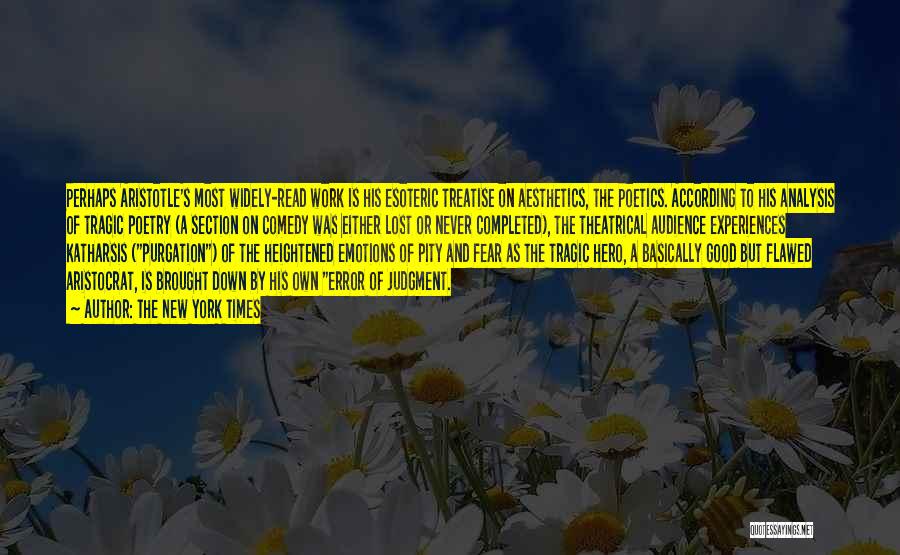
Perhaps Aristotle's most widely-read work is his esoteric treatise on aesthetics, the Poetics. According to his analysis of tragic poetry (a section on comedy was either lost or never completed), the theatrical audience experiences katharsis ("purgation") of the heightened emotions of pity and fear as the tragic hero, a basically good but flawed aristocrat, is brought down by his own "error of judgment. — The New York Times

The rules are all in a sixty-four-page pamphlet by Aristotle called 'Poetics.' It was written almost three thousand years ago, but I promise you, if something is wrong with what you're writing, you've probably broken one of Aristotle's rules. — Aaron Sorkin

And it's a case in point of the fact that these traditions - the mythology, the lore - are not being gone to as some kind of fixed, given entity that one then has to have a subservient relationship to. They are active and unfinished; they are subject to change; they are themselves in the process of transformation and transition. They speak to an open and open-ended possibility that the poetics that I've been involved in very much speaks to as well. To see cracks and incompleteness as not only inevitable but opportune. — Nathaniel Mackey

When we relate to our bodies as having soul, we attend to their beauty, their poetry and their expressiveness. Our very habit of treating the body as a machine, whose muscles are like pulleys and its organs engines, forces its poetry underground, so that we experience the body as an instrument and see its poetics only in illness. — Thomas Moore

To Wallace Stevens' post-Nietzschean formula 'God and the imagination are one,' these women poets would add a crucial third element: God and the imagination and my body are one. — Alicia Suskin Ostriker

What is a Poet? He is a man speaking to men: a man, it is true, endued with more lively sensibility, more enthusiasm and tenderness, who has a greater knowledge of human nature, and a more comprehensive soul, than are supposed to be common among mankind; a man pleased with his own passions and volitions, and who rejoices more than other men in the spirit of life that is in him; delighting to contemplate similar volitions and passions as manifested in the goings-on of the universe, and habitually impelled to create them where he does not find them. — William Wordsworth
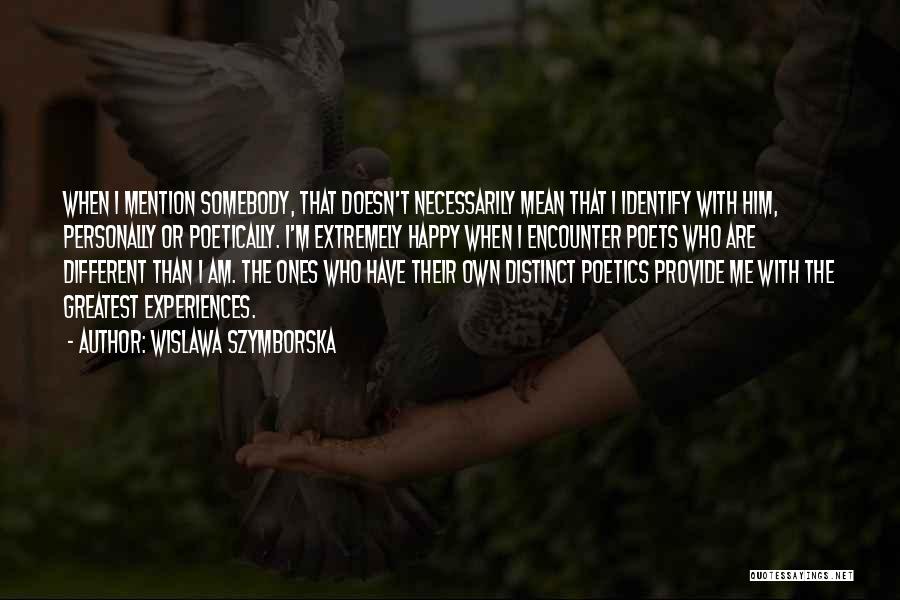
When I mention somebody, that doesn't necessarily mean that I identify with him, personally or poetically. I'm extremely happy when I encounter poets who are different than I am. The ones who have their own distinct poetics provide me with the greatest experiences. — Wislawa Szymborska

I make work that is many things at once: poems that are prose, that are pictures, that are poem and picture. Actions that are images using poems that are umbrellas. My best work is both/and, in-between, occupying several dimensions simultaneously.
(from my Poetics Statement in Troubling the Line) — Jay Besemer

War, I have always said, forces men to change their standards, regardless of whether their country has won or lost. Poetics and philosophies disintegrate "when the trees fall and the walls collapse ". At the point when continuity was interrupted by the first nuclear explosion, it would have been too easy to recover the formal sediment which linked us with an age of poetic decorum, of a preoccupation with poetic sounds. After the turbulence of death, moral principles and even religious proofs are called into question. Men of letters who cling to the private successes of their petty aesthetics shut themselves off from poetry's restless presence. From the night, his solitude, the poet finds day and starts a diary that is lethal to the inert. The dark landscape yields a dialogue. The politician and the mediocre poets with their armour of symbols and mystic purities pretend to ignore the real poet. It is a story which repeats itself like the cock's crow; indeed, like the cock's third crow. — Salvatore Quasimodo

Becoming interested in poetics got me interested in theater. Theater is supposed to be poetry, you know, before it's anything else. It just doesn't fly if it isn't musical. — Steve Earle

I admire the poetic relationship to place as enacted in Wallace Stevens' poems; his poetics strikes me as an argument against the restraints of realism. — Cate Marvin

Aristotle wrote the 'Poetics' 2,400 years ago. It's really an instruction manual for aspiring filmmakers. It's as valid today as it was then. — Nicholas Jarecki

There is a paradox in fiction that was first noticed by Aristotle in the Poetics. We are drawn to fiction because fiction gives us pleasure. But most of what is actually in fiction is deeply unpleasant: threat, death, despair, anxiety, Sturm und Drang. — Jonathan Gottschall

Surrealism is not a poetry but a poetics, and even more, and more decisively, a world vision. — Octavio Paz

The next time you hear someone in a workshop remarking on how good a particular free-verse line or passage sounds, scan it. The odds are that it will fall into a regular metrical pattern. — Annie Finch

The genuine artist, Harris is saying, finds reality in a point of identity between subject and object, a point at which the created world and the world that is really there become the same thing. [p.211] — Northrop Frye

The poetics of the oppressed is essentially the poetics of liberation: the spectator no longer delegates power to the characters either to think or to act in his place. The spectator frees himself; he thinks and acts for himself! Theatre is action! — Augusto Boal

Journey through the Power of the Rainbow represents a condensed compendium of literary efforts from a life dedicated to transforming the themes of injustice, grief, and despair that we all encounter during some unavoidable point of our existence into a sustainable life-affirming poetics of passionate creativity, empowered spiritual vision, and inspired commitment. — Aberjhani

Insofar as craft and poetics in a poem have a politics, I wanted to avoid that brittle enjambed-prose-sentence-lyric verse, where you have standard sentences snapped off and scattered decoratively across the page (which I might go out on a limb and say was characteristic of some leftist poets, Beat poets, street poets and populist poets of the 70s and 80s - all of whom I basically view as comrades, I should probably say, to this day) and on the other hand I also wanted my poetics to operate differently than those more right-wing academics - in practice - even if in their poems or statements they proclaim public leftist views or ideas - they remain academic poets, operating in elite university-supported circles, institutionalized and reading before institutional audiences, awarding grants and awards to each other, sitting on each other's grants panels, awards and tenure committees, as Philip Levine admitted in an interview in Don't Ask, 'giving prizes to friends. — Sesshu Foster

For me there is a poesis, a poetics, around the trope of the road that is embedded within many life experiences of the people I've been close to. — Anne Waldman

My freedom thus consists in my moving about within the narrow frame that I have assigned to myself for each one of my undertakings. I shall go even further: my freedom will be so much the greater and more meaningful the more narrowly I limit my field of action and the more I surround myself with obstacles. Whatever diminishes constraint diminishes strength. The more constraints one imposes, the more one frees oneself of the claims that shackle the spirit." - Igor Stravinsky, Poetics of Music — Dennis DeSantis
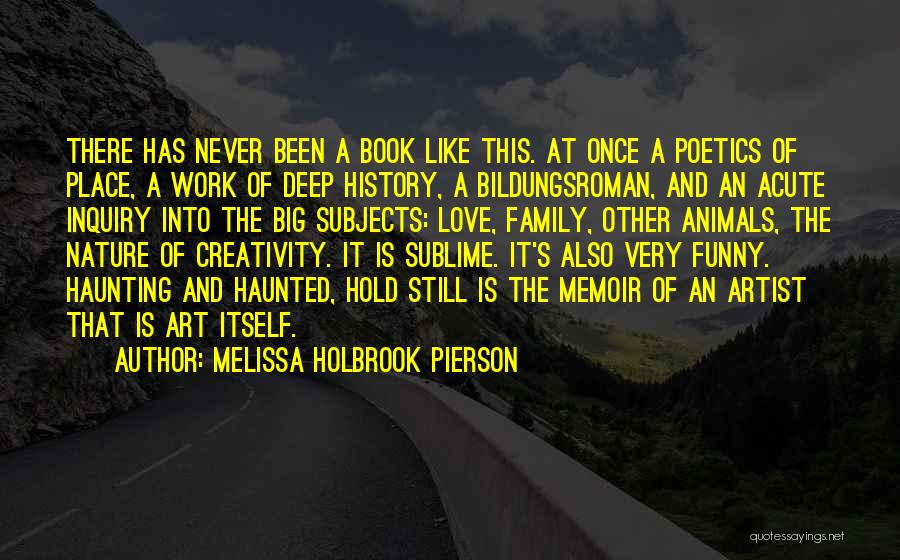
There has never been a book like this. At once a poetics of place, a work of deep history, a bildungsroman, and an acute inquiry into the big subjects: love, family, other animals, the nature of creativity. It is sublime. It's also very funny. Haunting and haunted, Hold Still is the memoir of an artist that is art itself. — Melissa Holbrook Pierson

(She catches sight of herself in the mirror. Go in fear of hyperbole) — Ann Lauterbach
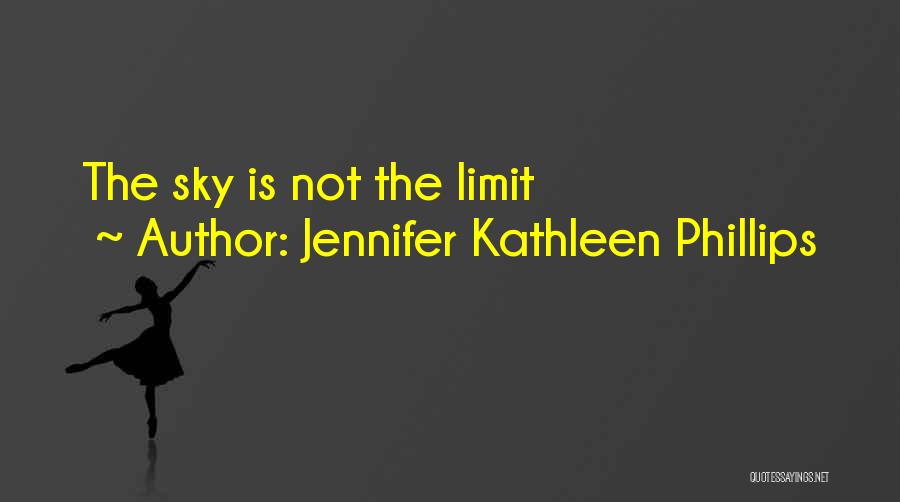
The sky is not the limit — Jennifer Kathleen Phillips

at man's height the mouth utters its cries, tosses forth its oracles, gives vent to its puns. To allow words to come to life, bare themselves, and show us by chance, for the space of a lightning bolt bony with dice, a few of our reasons for living and dying — Michel Leiris

Each young person is a poet of sorts, trying to sort out the poetics of their inner life and its relation to the great world around it. Each elder is a philosopher of sorts, trying to sort out the meanings and gleanings of a life as well as the necessary implications of the presence of death. — Michael Meade
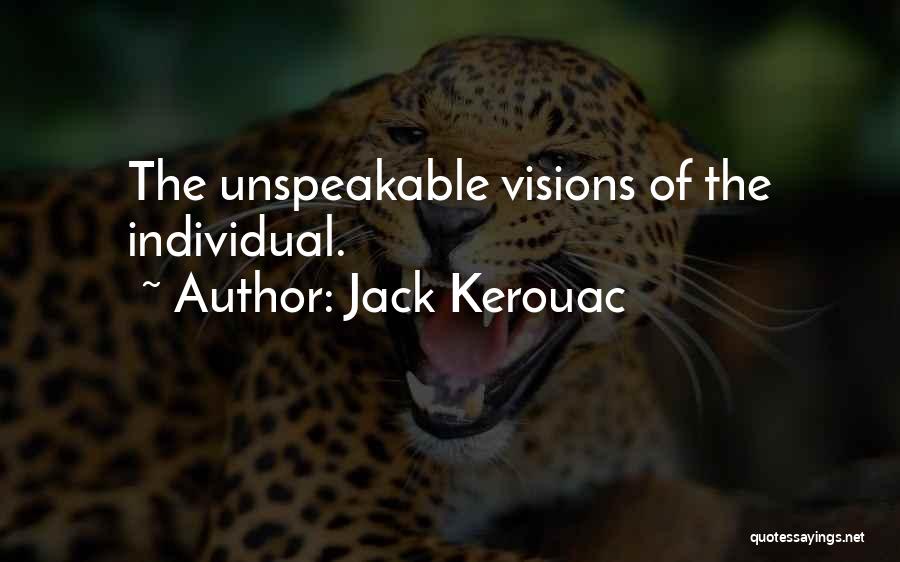
The unspeakable visions of the individual. — Jack Kerouac

When you are editing, the final master is Aristotle and his poetics. You might have a terrific episode, but if people are falling out because there are just too many elements in it, you have to begin to get rid of things. — Ken Burns
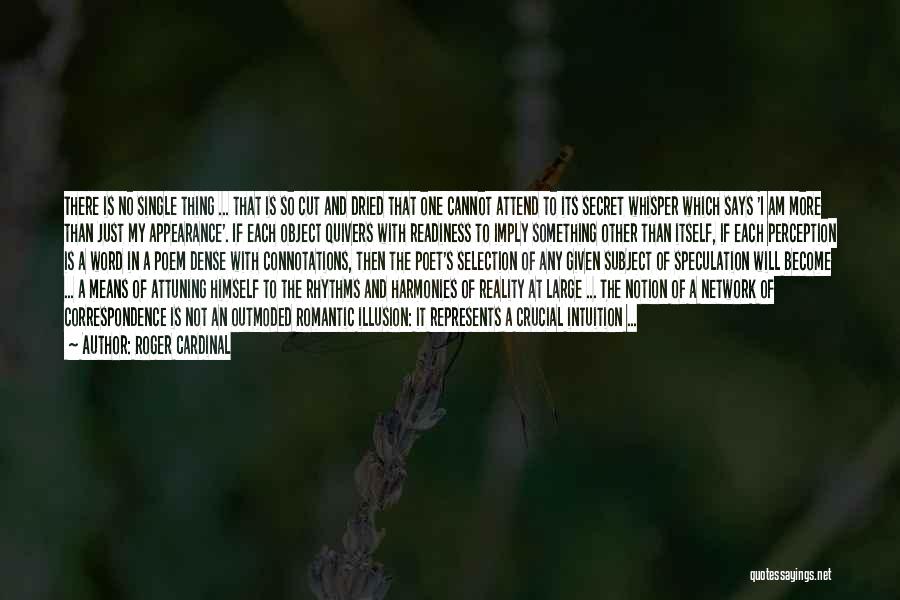
There is no single thing ... that is so cut and dried that one cannot attend to its secret whisper which says 'I am more than just my appearance'. If each object quivers with readiness to imply something other than itself, if each perception is a word in a poem dense with connotations, then the poet's selection of any given subject of speculation will become ... a means of attuning himself to the rhythms and harmonies of reality at large ... The notion of a network of correspondence is not an outmoded Romantic illusion: it represents a crucial intuition ... — Roger Cardinal

In 'A Poetics of Optics,' Equi writes that 'all images bank on alchemy.' This idea captures her fundamental sense of poetry as turning common material into something rare and valuable. — Floyd Skloot

Hamartia (n.) The flaw that precipitates the destruction of a tragic hero. Hamartia is a noble word, with a fine history (the OED says also that it refers particularly to Aristotle's Poetics). If you have any decency or soul, please do not use this word to refer to your own weakness for something such as chocolate. also — Ammon Shea

The author isn't altogether certain that there is any such thing as exaggeration. Our brains permit us to use such a wee fraction of their resources that, in a sense, everything we experience is a reduction. We employ drugs, yoga techniques and poetics - and a thousand more clumsy methods - in an effort just to bring things back up to normal. — Tom Robbins

[W]andering creates the desert. — Edmond Jabes

Reveries of idealization develop, not by letting oneself be taken in by memories, but by constantly dreaming the values of a being whom one would love. And that is the way a great dreamer dreams his double. His magnified double sustains him." - Gaston Bachelard, "Reveries on Reverie (Anima - Animus)", The Poetics of Reverie: Childhood, Language, and the Cosmos, Page 88 — Gaston Bachelard

My friend asked me if it had been cathartic, to write my memoir. I looked down at the sculptures - it was cathartic for me to look at them, but I could imagine it might have been hell to make them (I was cheered / when I came first to know / that there were flowers also / in hell). No, I answered - how was it for you to read it? Aristotle, in his Poetics, never promised catharsis for the makers of art, only for the audience. — Nick Flynn

Here we are at the very core of the thesis we wish to defend in the present essay: reverie is under the sign of the anima. When the reverie is truly profound, the being who comes to dream within us is our anima. For a philosopher who takes his inspiration from phenomenology, a reverie on reverie is very exactly a phenomenology of the anima, and it is by coordinating reveries on reverie that he hopes to constitute a "Poetics of reverie". In other words, the poetics of reverie is a poetics of the anima. — Gaston Bachelard

Flashlight beams danced crazily — Kurt Vonnegut Jr.

Haters, I'm not your enemy I'm your hero. Cheer up, you should be happy I'm here — Nicki Minaj

The appropriation of the creativity-procreativity metaphor by women is a conscious challenge to traditional poetics and beyond that to traditional metaphysics, for the gynocentric vision is not that Logos condescends to incarnate itself, but that Flesh becomes Word. — Alicia Suskin Ostriker

I may want to sleep with Miss America, but I have no wish to hear her talk about herself and her family. — W. H. Auden

In 1941, Dorothy L. Sayers provided a detailed analysis of that creative process in The Mind of the Maker. She developed the relevance of the imago Dei for understanding artistic creation in explicitly trinitarian terms. In every act of creation there is a controlling idea (the Father), the energy which incarnates that idea through craftsmanship in some medium (the Son), and the power to create a response in the reader (the Spirit). These three, while separate in identity, are yet one act of creation. So the ancient credal statements about the Trinity are factual claims about the mind of the maker created in his image. Sayers delves into the numerous literary examples, in what is one of the most fascinating accounts ever written both of the nature of literature and of the imago Dei. While some readers may feel she has a tendency to take a good idea too far, The Mind of the Maker remains an indispensable classic of Christian poetics. — Leland Ryken

Tonight I see no spheres, but project myself
and gaze back, an important trick
because the goal is to be on both sides of the poem,
shuttling between the you and I. — Ben Lerner

Neuere Poeten tun viel Wasser in die Tinte. (More recent poets put a lot of water in the ink.)
Goethe: Aus Makariens Archiv. Wilhelm Meisters Wanderjahre. III 18 — Johann Wolfgang Von Goethe

The idea of the person enters poetics where art and reality, or intentionality and circumstance, meet. — Lyn Hejinian

Mostly the thought and the verse come inseparably. In my poem Poetics, it's as close as I come to telling how I do it. — Howard Nemerov

By the time I wrote those first three songs for his new CD ... I wanted to push the poetics as hard as I could push them, and not decide the songs were finished until I committed them to whatever the recording format was. I went through drafts right up until I recorded every single one of them ... — Steve Earle

What mattered to Abu was the music of the sentence. 'A shadow does not belong to the object that casts it.' To Abu, it was a little poem. And in general, it was the poetics, the music of things that tossed his confetti. — Tom Robbins

Sometime in the last 50,000 years, before 12,000 years ago, a kind of paradise came into existence. A situation in which men and women, parents and children, people and animals, human institutions and the land all were in dynamic balance and not in any primitive sense at all. Language was fully developed, poetry may have been at its climax, dance, magic, poetics, altruism, philosophy. There's no reason to think that these things were not practiced as adroitly as we practice them today and it was under the boundary dissolving influence of psilocybin. — Terence McKenna

With women poets we look at or into, but not up at, sacred things; we unlearn submission. — Alicia Suskin Ostriker
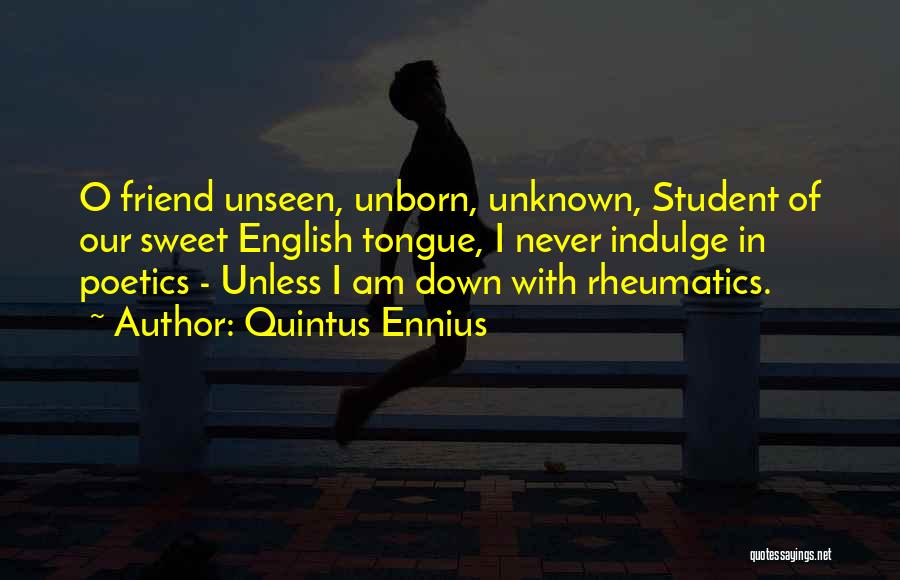
O friend unseen, unborn, unknown, Student of our sweet English tongue, I never indulge in poetics - Unless I am down with rheumatics. — Quintus Ennius

And the beautiful lady, still with her beautiful wasp's waist, the very beautiful lady whose charms buzz around our childish dreams, will not turn to cigar smoke when the North Star appears. — Michel Leiris

I do have an honorary professorship in Poetics from the Vienna Academy of Arts. So I have not gone completely unnoticed — Blixa Bargeld

All good poems are victories over something. — Stephen Dunn

Other approaches to studying language, and there are many, go by names like poetics, philology, and rhetoric, but as long as we have had the word in English, linguistics has been associated with the methods, goals, and results of science.1 When William Whewell (who is also responsible for the coinage, scientist) first proposed the term, it was in his History of the Inductive Sciences (1837.1:cxiv; he was borrowing it from the Germans, who, Teutonically
enough, later came to prefer Sprachwissenschaft). — Randy Allen Harris

I was a reader before I was a writer, and when I started putting together my first collection of short stories, Fairytales For Lost Children, I drew on my rich history as a reader to try and create my voice. I wanted this voice to reflect my Somali background, my Kenyan upbringing and my London home. This voice would be a mashup of all the elements that formed my youth; the sticky-sweet Jamaican patois, the Kenyan street slang, my Somali and Italian linguistic tics, my love of jazz poetics and nineties hip-hop slanguistics. This language would form the bed on which my narratives of love, loss, identity and hope would rest. — Diriye Osman

The poetics of politics had to be observed. — Tom Clancy

Aristotle, on the other hand, saw poetry as having a positive value: "It is a great thing, indeed, to make proper use of the poetic forms, . . . But the greatest thing by far is to be a master of metaphor" (Poetics 1459a); "ordinary words convey only what we know already; it is from metaphor that we can best get hold of something fresh" (Rhetoric 1410b). — George Lakoff

Just as if Manetho's "Aegyptiaca" or the second book of Aristotle's "Poetics" reappeared, the simple fact that such a significant text as "The Gospel of Judas," believed to be lost forever, comes back to light, constitutes in itself an absolutely exceptional event. But in the present case, the impact of such a discovery takes on particular importance, since, through the rehabilitation of Judas, by presenting him as the closest disciple of Christ and as the one he chose to "betray" him in order to fulfill God's will, this text not only seriously challenges one of the most firmly rooted believes in Christian tradition, but also reduces one of the favorite themes of anti-Semitism to nothing — Francois Gaudard

Your friends, and your associates, and the people around you, and the environment that you live in, and the speakers around you - the speakers around you - and the communicators around you, are the poetry makers.
If your mother tells you stories, she is a poetry maker.
If your father says stories, he is a poetry maker.
If your grandma tells you stories, she is a poetry maker.
And that's who forms our poetics. — Juan Felipe Herrera

Midway between the too soiled ground and the too-sublime vaults, at the level of the air, entering the skin of the role, poetry plays its game. — Michel Leiris

You really felt a radical shift in the advance of a poetics that had really been engendered by [Walt] Whitman. This was very exciting. I wanted to work in this environment. — Anne Waldman

It's your privilege to find me incomprehensible. I gave you my minutes; let them remain ours. I hope I haunt you. — Theodore Roethke

My inspiration came from the land, ... and, of course, from Paul Klee ... and the poetics of his paintings. — Renzo Piano

What a dynamic, handsome object is a path! How precise the familiar hill paths remain for our muscular consciousness! Oh, my roads and their cadence. — Gaston Bachelard

So yes, I'm trying to think about the connections between politics and poetry. There's an awful lot you could say here.Poetics is a form of poesis, a form of production-construction, but there might be ways of conceiving of that in a much more interesting manner. That's what I'm thinking about at the moment. — Simon Critchley






